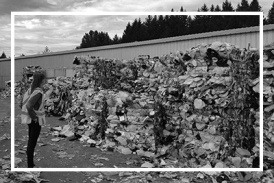Sisters of the Valley Invite Strategic Licensing Partners for Global Expansion
With over a decade of success, the Sisters are now ready to extend their reach through select licensing agreements across these categories:
• CBD/hemp products (existing product line)
• Psychotropic cannabis products through dispensaries — never pre-rolls, never vapes.
• Non-psychoactive functional mushroom products (existing line plus)
• Psychotropic Mushrooms through Dispensaries
• Branded merchandise, hemp textiles, and bioplastics
The Sisterhood seeks partners aligned with its core values: ecological stewardship, sacred production, social responsibility, and respect for the ancient wisdom of plant medicine.
The Sisters have always prioritized the gentlest, safest delivery systems. In their ten-years-plus history of operating, the Sisters have never sold or promoted the smokable forms of the medicine, honoring instead, the safest ways of ingesting and seek collaboration with those who don't wish to change that.
To inquire about licensing opportunities, email support@sistersofcbd.com and put ‘licensing’ into the heading. The queries are routed to the team comprising of Sister Kate (in California) and Sister Karina (in New York).
Interested parties are asked to include a brief introduction, region of interest, and the preferred licensing field (e.g., CBD, psilocybin, merchandise, etc.). An NDA is required before any term sheet or agreement will be shared.
“The plants we work with don’t see borders, and neither do we. And certainly, as America gets more insular, we must get more global,” said Sister Halla.
The Sisters currently operate from California and support an expanding network of Sisters in Chile, Mexico, Brazil, Sweden, and more. With film appearances scheduled for 2025 and a growing media presence, the Sisterhood stands ready to extend their sacred mission with global collaborators. To view the Sisters’ products, visit sistersofthevalley.org.
Sister Kate
Sisters of the Valley
209-626-6601
email us here
Visit us on social media:
LinkedIn
Instagram
Facebook
YouTube
Legal Disclaimer:
EIN Presswire provides this news content "as is" without warranty of any kind. We do not accept any responsibility or liability for the accuracy, content, images, videos, licenses, completeness, legality, or reliability of the information contained in this article. If you have any complaints or copyright issues related to this article, kindly contact the author above.
Global Mining Shovel Market Poised for USD 11.9 Billion Milestone by 2035 with Electrification and Global Demand Surge
Updated Links: Weiner Team on London Times Radio, US Main Street Radio; Op-Eds on Marijuana, College Cost, Trump Fatigue
Future of Work Events Announces Executive Women's Symposium in Chicago August 7-8, 2025
Kalendarium
Więcej ważnych informacji
 Jedynka Newserii
Jedynka Newserii

 Jedynka Newserii
Jedynka Newserii

Handel

Ze względu na różnice w cenach surowce wtórne przegrywają z pierwotnymi. To powoduje problemy branży recyklingowej
Rozporządzenie PPWR stawia ambitne cele w zakresie wykorzystania recyklatów w poszczególnych rodzajach opakowań. To będzie oznaczało wzrost popytu na materiały wtórne pochodzące z recyklingu. Obecnie problemy branży recyklingu mogą spowodować, że popyt będzie zaspokajany głównie przez import. Dziś do dobrowolnego wykorzystania recyklatów nie zachęcają przede wszystkim ceny – surowiec pierwotny można kupić taniej niż ten z recyklingu.
Przemysł spożywczy
Rośnie presja konkurencyjna na unijne rolnictwo. Bez rekompensat sytuacja rolników może się pogarszać

Rolnictwo i żywność, w tym rybołówstwo, są sektorami strategicznymi dla UE. System rolno-spożywczy, oparty na jednolitym rynku europejskim, wytwarza ponad 900 mld euro wartości dodanej. Jego konkurencyjność stoi jednak przed wieloma wyzwaniami – to przede wszystkim eksport z Ukrainy i niedługo także z krajów Mercosur, a także presja związana z oczekiwaniami konsumentów i Zielonym Ładem. Bez rekompensat rolnikom może być trudno tym wyzwaniom sprostać.
Transport
Infrastruktury ładowania elektryków przybywa w szybkim tempie. Inwestorzy jednak napotykają szereg barier

Liczba punktów ładowania samochodów elektrycznych wynosi dziś ok. 10 tys., a tempo wzrostu wynosi ok. 50 proc. r/r. Dynamika ta przez wiele miesięcy była wyższa niż wyniki samego rynku samochodów elektrycznych, na które w poprzednim roku wpływało zawieszenie rządowych dopłat do zakupu elektryka. Pierwszy kwartał br. zamknął się 22-proc. wzrostem liczby rejestracji w ujęciu rocznym, ale kwiecień przyniósł już wyraźne odbicie – o 100 proc.
Partner serwisu
Szkolenia

Akademia Newserii
Akademia Newserii to projekt, w ramach którego najlepsi polscy dziennikarze biznesowi, giełdowi oraz lifestylowi, a także szkoleniowcy z wieloletnim doświadczeniem dzielą się swoją wiedzą nt. pracy z mediami.











.gif)

 |
| |
| |
|